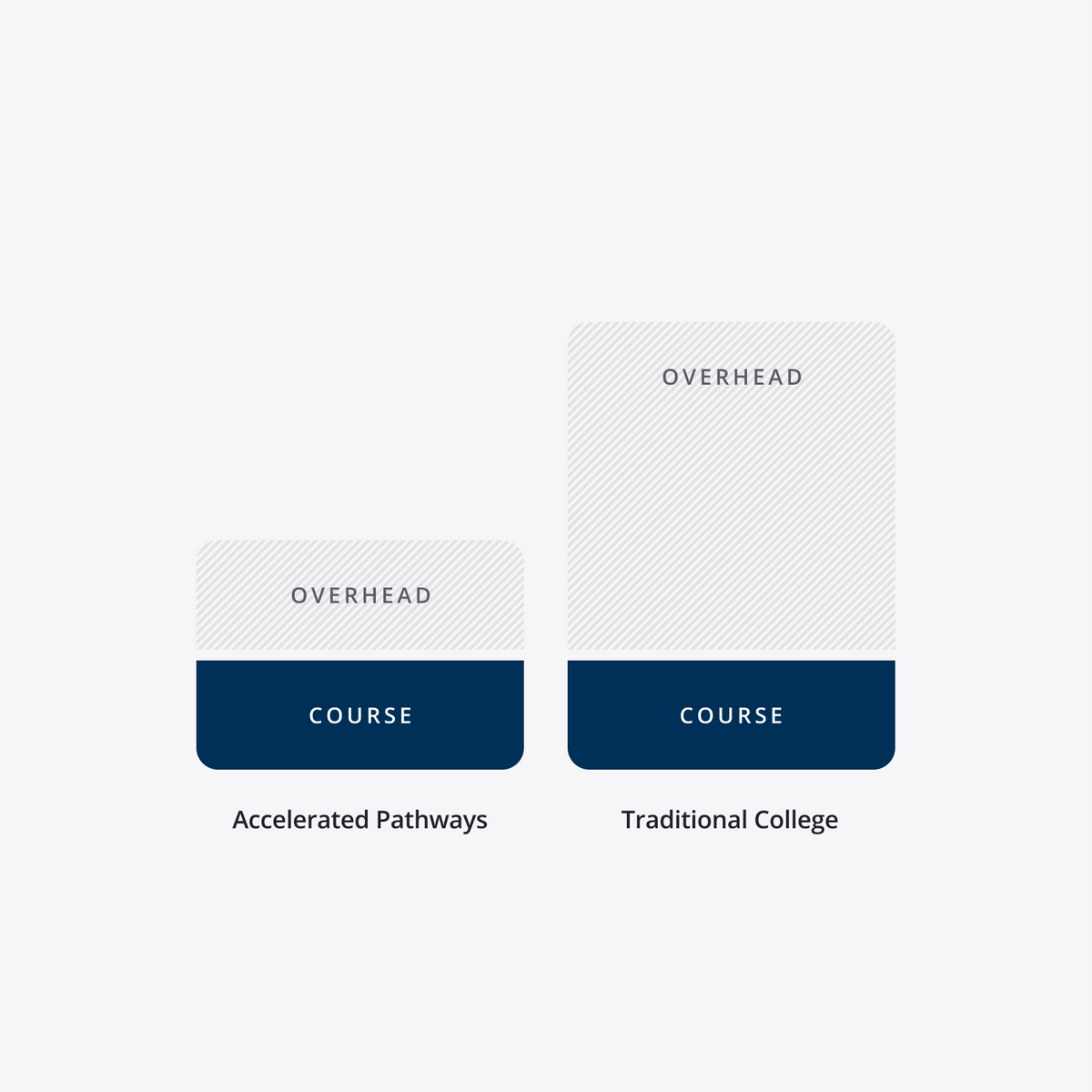EXPERIENCE FREEDOM IN EDUCATION
Affordable Online College Courses
Our courses, offered in conjunction with partner colleges, give you the freedom to pursue your passion and advance your career, all while earning your bachelor’s degree.
Higher Education at a Lower Cost
College shouldn’t cost a fortune or strap you with lifelong debt. We provide access to dozens of online college courses without the burden of extra costs.


Choose Your Learning Style
Traditional college courses offer you little freedom in your studies. With Accelerated Pathways, you have three unique ways to experience a college course.
No Credit Left Behind
We’re not the only solution for alternative online courses, but we are the only one who guarantees your courses will transfer into your degree.1

The Global Digital Classroom®
The learning doesn’t stop with these affordable, online courses. You'll have access to thousands of course options from hundreds of colleges which can be incorporated into your degree as needed. This way, we help you plan every course you need for your degree, even if you don’t see it listed here. The Global Digital Classroom® gives you extra freedom to pursue courses which align to your interests while enjoying the cost savings and flexibility Accelerated Pathways has to offer.
Course Catalog
Are you a candidate?
Interested in taking flexible online courses through Accelerated Pathways? Take our quick assessment to find out if this program is right for you.
Want to learn more?
Self-paced online courses can be started anytime and give you maximum flexibility to study at your own pace. This format can we taken as a 6, 8, or 10 week term but does not have weekly assignment due dates. If you like to set your own schedule, these might be the perfect courses for you!